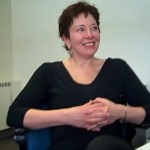In my last posting, I talked about using curious questions with students to help them discover their goals. Here is a list of curious questions you might try asking:
Curious Questions
- What concerns you most about…?
- What could you do right now that might help you get unstuck?
- What’s most important to you about this right now?
- What would you like help thinking through?
- How is this affecting you?
- What is really important to you in this situation?
- How is this working out?
- What might that mean to you?
- What else would you like to tell me about it?
- What have you tried so far?
- How can you find out more about it?
- What is important to you about this goal?
- What do you think is best?
- Where do you go from here?
- What’s most important to you about this right now?
- What could you do to improve the situation even a little?
- What is really important to you in this situation?
- What is important to you about this goal?
- What’s humorous about the situation?
- What might that mean for you?
- What are your thoughts about how to manage the situation?
- What other ideas do you have about it?
- What are your next steps?
- What are some other options?
- If you had your choice, what would you do?
- Who else on campus could you talk with about this?
- What do you want?

